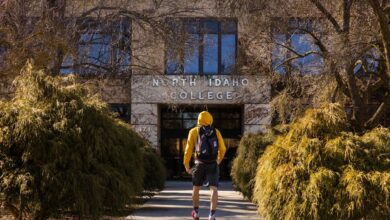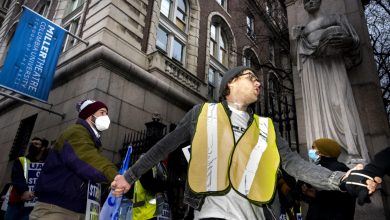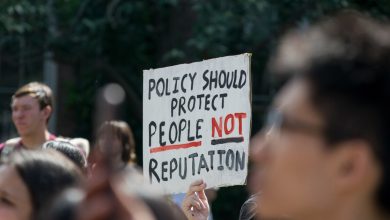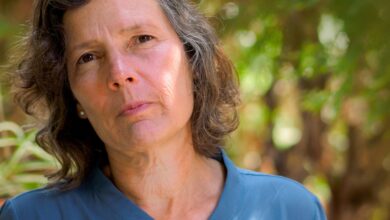Is New College of Florida Headed for a Hostile Takeover?
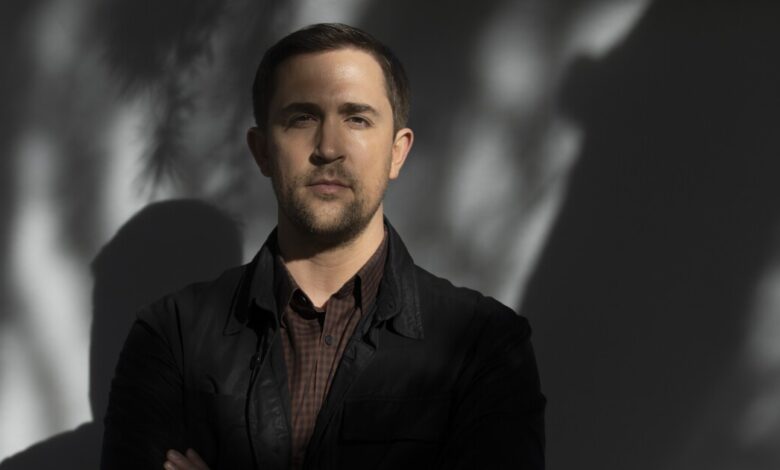
[ad_1]
The territory Rufo intends to seize is a 110-acre campus located on a lagoon in Sarasota. New College, founded in 1960, has long had a reputation for doing things differently; the adjective “quirky” is often employed to describe its vibe. With fewer than 700 students, it’s the smallest college in the state’s university system. Students receive narrative evaluations rather than grades. Each January, undergraduates undertake an independent study project, which might involve an overseas trip or a stint in a professor’s lab. New College pitches itself as a “community of free thinkers, risk takers, and trailblazers” and ranks high on lists of small, low-cost liberal-arts colleges.
But the college has struggled to meet its enrollment goals in recent years. What’s more, the campus is suffering from a “culture problem,” according to Rufo, and has fallen victim to a “suffocating left-wing orthodoxy” that will silence “anyone on the wrong political end of the intersectional hierarchy.” That’s what he wrote in a recent article for City Journal, which is published by the Manhattan Institute, where Rufo is a senior fellow. He is committed to redirecting the institution toward “the pursuit of academic brilliance,” a process that will involve a “period of inevitable conflict and controversy.”
That inevitable period began in earnest on Wednesday when Rufo, dressed in a suit and tie and accompanied by a Manhattan Institute staffer, arrived on campus to conduct two town halls, one with professors and another with students. He appeared alongside another newly appointed trustee, Jason (Eddie) Speir, one of the founders of a nearby Christian school, who wrote in a newsletter this week that he hoped to lead the college “out of wokeness.” Speir also reported that he had received an email death threat prior to his campus visit, which led to discussion about whether to cancel the town halls.
Reporters from national outlets materialized for the arrival of two newly appointed trustees at a tiny college, an occurrence that, under normal circumstances, would barely merit mention in the local paper. Would protesters prevent Rufo and Speir from speaking? Would the campus descend into chaos? Would Rufo’s landing party plant a flag on the shores of Sarasota Bay?
No, as it turns out. By all accounts, the back-and-forth was largely civil. The fireworks, though, may happen next week when the full board meets for the first time since DeSantis’s appointments. On the agenda is an item titled “Role of Office of Outreach & Inclusive Excellence,” which is what New College calls its diversity, equity, and inclusion program. Rufo is listed as the trustee making that presentation, and the Manhattan Institute recently proposed legislation that would prevent colleges from hiring DEI officers. Also on the agenda is a session regarding the employment contract for the college’s president, Patricia Okker, who was dean of the College of Arts and Science at the University of Missouri before being selected as New College’s leader in 2021. (Okker didn’t respond to an email request for an interview and has been keeping a low profile in the wake of the appointments.)
But Rufo can’t decide to fire Okker, or eliminate the college’s diversity program, on his own. He’ll need the votes of other trustees and it’s not obvious that they’re on the same page. I spoke with Mark Bauerlein, another of DeSantis’s appointees, and the author of The Dumbest Generation and The Dumbest Generation Grows Up, two books that portray millennials in a less-than-flattering light. The professor emeritus of English at Emory University often argues that identity politics has displaced the Western canon to the detriment of education and the nation.
Bauerlein doesn’t speak of his new gig in the same revolutionary terms as Rufo. Instead he sees his task as attempting to “ensure that the school is remaining true to its academic mission, that education is strong, that numbers are good, enrollment, graduation rates, retention and job placement” — trustee basics, in other words. Bauerlein says Rufo, who previously had no connection to the college or much experience in higher education, was probably chosen “for the energy that he brings and his experience with the battles that he has fought.”
Debra Jenks, another trustee appointee, isn’t talking about turning the college upside down either. Jenks, a lawyer in West Palm Beach, is a 1980 graduate of New College and remembers her time as an undergraduate fondly. She points to the college’s failure in recent years to meet its enrollment goals and voices her concern that, if things don’t turn around, New College might disappear altogether. “I think it’s going to take everybody working together toward a common goal, which for me is to keep the school independent,” she says. When asked about some of Rufo’s comments regarding the culture of the college, Jenks declined to comment.
After the new slate of trustees was announced, Manny Díaz Jr., Florida’s education commissioner, said it was the administration’s hope that New College would become a “classical college more along the lines of a Hillsdale of the South.” That was a reference to the private Christian college in Michigan known for maintaining strong ties to the White House during the Trump administration. If mimicking Hillsdale is the vision, that may be why DeSantis also named Matthew Spalding, dean of Hillsdale’s Graduate School of Government, as a trustee.
In an email, Spalding writes that the goal, from his point of view, isn’t about “turning New College into something it is not, but strengthening its own, legislatively defined mission.” He went on to take shots at modern higher education, which he argues is “more often than not a smorgasbord of dogmatic relativism that nevertheless insists on whatever is academically in vogue.” He notes that, in contrast to New College, which has had trouble attracting students, “enrollment is surging” at Hillsdale.
Another new trustee was announced on Thursday who is likely to be an ally of Rufo and Spalding. Ryan T. Anderson is the president of the Ethics and Public Policy Center, a think tank dedicated to applying the “riches of the Judeo-Christian tradition” to contemporary culture. Anderson is also the author When Harry Became Sally: Responding to the Transgender Moment, a 2018 book that made headlines in 2021 when Amazon pulled the book from its site. The retailer later explained that it did not “sell books that frame LGBTQ+ identity as a mental illness.” (Anderson said at the time that Amazon’s characterization of his book was unfair.)

Chona Kasinger, The New York Times, Redux
Plenty of students and faculty members at New College have been taken aback by the vague plans to overhaul the institution, and also at how their campus has been thrust into the culture wars. Alyssa Boynton, a senior studying psychology, was “naturally not thrilled” when she heard about the appointments. Boynton works in the college’s admissions department and is in regular contact with prospective students — many of whom, she says, have also been distressed by the news and the sense that the college’s future is up in the air. “It really saddens me because we have a lot of students who are really excited about joining this community, and I don’t want to see that jeopardized,” she says. “It’s very hard to convince people to come to a school that they’re afraid will be changed very soon.”
Boynton doesn’t think it’s fair to characterize New College as a place where students can’t debate. Several other students told me the same, though they also all agreed that the student body leaned left politically. “It’s all kinds of variations of the left,” said William Lopez, a freshman studying biochemistry and biopsychology. “But there are many people who will have some conservative ideas and people will obviously discuss between each other whether they like those ideas or not.”
Rufo has been a relentless critic of gender-studies programs, including during his Hillsdale speech last year. Amy Reid, director of New College’s gender-studies program, is aware of Rufo’s stance, though she wasn’t familiar with him before he was named a trustee. “I am not afraid of what they are going to do,” she told me. “I am steely in my determination to continue fulfilling my responsibilities as an educator.” Reid says she’s upset at the way she feels her field is often misrepresented. “I don’t try to get students to toe any ideological line,” says Reid, who has taught at New College for 27 years.
Another longtime faculty member, who spoke on the condition that his name not be used, said the notion that New College is a “radical college” is unfair, but he also thought the campus could be more welcoming toward conservative students and more tolerant of a wider range of ideas. “I don’t think we’re a huge outlier, but campus culture has swung to the left in recent years,” he says. The professor argues that proposals for reform could be helpful, but axing top officials and eliminating programs could lead to a backlash. “A conversation about how we might reshape our curriculum is fine,” he says. “But that’s a different world than wishing to fire the president five minutes after you land.”
Is that what Rufo — who declined an interview request — has in mind? Some at New College are treating Okker’s dismissal as a likelihood. As for cutting programs, Rufo tweeted Thursday afternoon that “DEI departments are political bureaucracies that push a pernicious racialist ideology” and that “conservatives should make both the moral and economic case for abolishing them.” He didn’t mention New College, but given the board’s agenda for its meeting next week, the implication is clear.
[ad_2]
Source link


